The Chairman of the Supreme Court’s overview of court orders, the administration of justice, and the uniform application of laws.
Session: 15th Riigikogu, 5th session, plenary sitting.
Date: 2025-06-10 13:04
Participating Politicians:
Total Speeches: 102
Membership: 15
Agenda Duration: 2h 30m
AI Summaries: 102/102 Speeches (100.0%)
Analysis: Structured Analysis
Politicians Speaking Time
Politicians
Analysis
Summary
The agenda included a presentation by the Supreme Court's Chief Justice, Villu Kõve, on the situation regarding court orders, the administration of justice, and the uniform application of laws. Kõve pointed out that the court system operates independently and impartially, but efficiency continues to decline, and the lengthening of processing times and increasing workload are affecting the resolution of civil, administrative, and criminal cases. He emphasized the influence of funding, the arrival of the younger generation, and the experience of retiring judges, and raised the need for reforms including: merging courts, a unified workload distribution, the implementation of digital and artificial intelligence, and the responsibility and disciplinary mechanisms for judges. He also touched upon the implementation of the development plan and critical issues at the state level, including maintaining the credibility of courts and the rule of law, and involving the public in reforms. In addition, questions and discussions flowed from both court system practitioners and politicians, including observations on consumer credit, environmental law, and the volume of cases filed in court, and the ethical and practical risks of artificial intelligence were raised, along with the need for additional legislative and funding solutions. Overall, the agenda focused on the future possibilities for the court system and its funding, and their impact on society.
Decisions Made 1
The Riigikogu sitting was extended at the proposal of the Reform Party faction until the agenda was exhausted, but not longer than 2:00 PM. Forty-seven members of the Riigikogu voted in favor.
Most Active Speaker
Urmas Reinsalu (Isamaa, parem – Isamaa, right) was active both in asking questions and in the faction speech, sharply criticizing the actions of the governing coalition, the shortcomings of constitutional oversight, and the failure to put the proposal to reduce administrative expenses to a vote.
Aseesimees Toomas Kivimägi
AI Summary
The first item on the agenda is the overview by Villu Kõve, Chief Justice of the Supreme Court, concerning the organization of courts, the administration of justice, and the uniform application of laws. His presentation will last up to 30 minutes, after which members of the Riigikogu will have the opportunity to ask one question, and only parliamentary factions may participate in the ensuing debate.
Riigikohtu esimees Villu Kõve
AI Summary
Chief Justice of the Supreme Court Villu Kõve noted that although the court system functions independently and impartially, the efficiency of proceedings has decreased, the workload has increased, and the lengthening of processing times continues. He presented broad-based reform proposals, ranging from digitization and the use of artificial intelligence to the merging of courts, better division of labor, and changes to funding and salary policy, with the goal of accelerating and improving the administration of justice.
Aseesimees Toomas Kivimägi
AI Summary
The speech addressed a five-minute period.
Riigikohtu esimees Villu Kõve
AI Summary
This is a short and direct note: five minutes, and everything will be clear.
Aseesimees Toomas Kivimägi
AI Summary
Toomas Kivimägi points out that usually three are given, but the sentence gives the impression that something is different.
Riigikohtu esimees Villu Kõve
AI Summary
Chief Justice of the Supreme Court Villu Kõve stated that while the proposed judicial reform plans are welcome, they raise questions concerning viability, financial guarantees, IT oversight, and the limits of delegating legislative drafting authority. To advance both conceptual thinking and practical improvements, he presented an interim report to the Riigikogu (Parliament), which was prepared in collaboration with the Constitutional Committee. Furthermore, he pointed out specific concerns regarding the recruitment of members for the electoral commission, curriculum reform, the long-term sustainability of notarial fees, and the necessity of simplifying both expedited payment order proceedings and administrative procedures. Finally, he urged politicians to refrain from emotional attacks directed at the judiciary and instead contribute to the overall enhancement of the court system.
Aseesimees Toomas Kivimägi
AI Summary
Vice-Chairman Toomas Kivimägi thanked the speaker for the excellent, informative, and inspiring presentation, noting that the large number of questions reflected this. Helmen Kütt will begin next.

Helmen Kütt
Profiling Sotsiaaldemokraatliku Erakonna fraktsioonAI Summary
Helmen Kütt expressed concern that people's sense of justice is often violated when they are treated as guilty even before a court decision, and that their reputation and health suffer during the lengthy proceedings. She noted that this often results in compensation payments reaching millions, and asked how such a situation could be prevented.
Riigikohtu esimees Villu Kõve
AI Summary
Chief Justice of the Supreme Court Villu Kõve stressed that the rules governing general criminal proceedings are too slow and expensive, requiring comprehensive reform, including auditing and the acceleration of procedures. Otherwise, the damage and media accusations preceding a court verdict will continue.
Aseesimees Toomas Kivimägi
AI Summary
The Vice-Chairman invites Madis Timpson to speak.
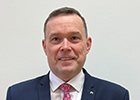
Madis Timpson
Profiling Fraktsiooni mittekuuluvad Riigikogu liikmedAI Summary
Madis Timpson said that the amendments to the Code of Criminal Procedure (KrMS), which are intended to speed up the process, are currently before the Legal Committee and are scheduled to be processed this autumn. He expressed concern about the backlog of administrative cases in Tallinn, which he believes is too long, and asked why top judges are resigning and in which fields it is currently most difficult to recruit judges.
Riigikohtu esimees Villu Kõve
AI Summary
The Chief Justice of the Supreme Court emphasizes that Estonia needs more civil judges. While the administrative court has qualified young judges, experience is required; the work atmosphere is forcing people to leave, and changes are moving slowly, but the goal is to make the judicial system more flexible and create a better employer brand.
Aseesimees Toomas Kivimägi
AI Summary
Deputy Speaker Toomas Kivimägi calls Urve Tiidus to the stage.

Urve Tiidus
Profiling Eesti Reformierakonna fraktsioonAI Summary
Urve Tiidus asked the Chief Justice of the Supreme Court whether the judicial examination held last year was too difficult, or if the standard of legal education is lacking, and how likely it is that artificial intelligence will partially take over these professions in the future.
Riigikohtu esimees Villu Kõve
AI Summary
Chief Justice of the Supreme Court Villu Kõve stressed the role of artificial intelligence in accelerating court proceedings through the processing of large data masses. Furthermore, he advocated for a unified bar examination, integrated legal studies, and the harmonization of legal education, citing Priit Pikamäe's vision.

Maris Lauri
Profiling Eesti Reformierakonna fraktsioonAI Summary
Maris Lauri requests an assessment from the Chief Justice of the Supreme Court regarding the constitutionality of the changes to the court's organization, pointing out that the proposed amendments may not be entirely constitutional, including the guarantee of budgetary independence. She also emphasizes that the views of various authorities contradict each other and asks what should be done if the solution were to become subject to a constitutional complaint.
Aseesimees Toomas Kivimägi
AI Summary
The Deputy Chairman, Toomas Kivimägi, called upon Maris Lauri to speak.
Riigikohtu esimees Villu Kõve
AI Summary
Chief Justice of the Supreme Court Villu Kõve emphasized that while concerns over court administration and the courts' self-governance are serious and must be addressed, the draft bill must not be allowed to halt the work of the entire judicial system. He argued that the discussion should instead focus on the issue of delegating legislative competence and the question of whether court closures should be decided by the courts or by the Parliament (Riigikogu), noting that national solutions vary across European countries and that rushing the process is not sensible.
Aseesimees Toomas Kivimägi
AI Summary
Deputy Speaker Toomas Kivimägi calls Riina Sikkut to the stage.

Riina Sikkut
Profiling Sotsiaaldemokraatliku Erakonna fraktsioonAI Summary
Riina Sikkut posed two questions: what the state should change in legislation to strengthen consumer credit and consumer protection, and how the resources and procedural capacity of the Supreme Court are able to handle the resolution of major political disputes, including issues concerning prison leases, internal security, the involvement of healthcare professionals, and the adjudication of medical complaints filed by inmates.
Aseesimees Toomas Kivimägi
AI Summary
The speech is simply an expression of gratitude.

Riina Sikkut
Profiling Sotsiaaldemokraatliku Erakonna fraktsioonAI Summary
Riina Sikkut is discussing what should be done about the complaints filed by foreign detainees.
Riigikohtu esimees Villu Kõve
AI Summary
Chief Justice of the Supreme Court, Villu Kõve, called for state intervention and systemic changes in debt management practices, including simplifying the expedited payment order procedure and allowing for objections, as well as increasing the authority of the Financial Supervision Authority (FSA). He stressed that addressing loan debtors on a case-by-case basis will not fix the system, and that the burden on the courts is growing, necessitating additional funding.
Aseesimees Toomas Kivimägi
AI Summary
Deputy Chairman Toomas Kivimägi invited Maria Jufereva-Skuratovski to speak.

Maria Jufereva-Skuratovski
Profiling Fraktsiooni mittekuuluvad Riigikogu liikmedAI Summary
Maria Jufereva-Skuratovski inquired about the ethical and practical risks associated with using artificial intelligence in the work of judges to expedite proceedings, and whether a timeline exists for processing case materials using AI.
Riigikohtu esimees Villu Kõve
AI Summary
The Chief Justice of the Supreme Court, Villu Kõve, stated that the development of an AI-based legal system ultimately hinges on getting the initiative off the ground, securing funding, and launching cooperation between various institutions. Although the development plan adopted for 2030 provides a clear direction, and there is a plan to procure at least one project manager, risks remain concerning the security of personal data, the influence of foreign partners, the availability of legal information, and preventing 'hallucination.' However, he remains optimistic and believes these risks can be mitigated and the work can be successfully launched.
Aseesimees Toomas Kivimägi
AI Summary
Deputy Chairman Toomas Kivimägi invited Margit Sutrop to speak.

Margit Sutrop
Profiling Eesti Reformierakonna fraktsioonAI Summary
Margit Sutrop raised the issue that the concerns relate to legal education, and asked whether judges, before taking on full responsibility, could undergo a system similar to supervised practice or a residency. She also inquired whether such a practice has been discussed and implemented in any other country.
Riigikohtu esimees Villu Kõve
AI Summary
The Chief Justice of the Supreme Court, Villu Kõve, said that intermediate options must be found for testing a residency-like system, because the current all-or-nothing system does not challenge potential judges, and low pay and lack of experience deter interest, and that through soft measures, such as exchange programs between law firms and judges, there is hope of eventually reaching a residency-like solution.
Aseesimees Toomas Kivimägi
AI Summary
The Vice-Chairman invites Ando Kiviperg to the stage.

Ando Kiviberg
Profiling Fraktsiooni mittekuuluvad Riigikogu liikmedAI Summary
Ando Kiviberg thanked the chairman of the session and the Chief Justice of the Supreme Court, noting that the defamation of the judicial system and the consciously disseminated falsehoods constitute deliberate activity. He then posed a question regarding the law on the reform of courts and the streamlining of administration, recalling that while its constitutionality previously seemed unproblematic, the situation is now different.
Aseesimees Toomas Kivimägi
AI Summary
Deputy Speaker Toomas Kivimägi thanked the audience.

Ando Kiviberg
Profiling Fraktsiooni mittekuuluvad Riigikogu liikmedAI Summary
Ando Kiviberg asks how one is supposed to stay in the saddle during the process when the partners—in this case, the courts—are so inconsistent, constantly switching between one approach and another.
Aseesimees Toomas Kivimägi
AI Summary
Deputy Chairman Toomas Kivimägi thanks Ando.
Riigikohtu esimees Villu Kõve
AI Summary
Chief Justice Villu Kõve said that the views of Pikamäe and Ernits reached him only after that session of the Constitutional Committee, and while he wouldn't dare say they are talking nonsense, he is critical of their late presentation. He noted that the ideal scenario would have been to discuss the entire topic earlier in the Constitutional Committee.
Aseesimees Toomas Kivimägi
AI Summary
Vice-Chairman Toomas Kivimägi asks Irja Lutsar to speak.
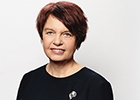
Irja Lutsar
Profiling Eesti 200 fraktsioonAI Summary
Irja Lutsar apologizes for slightly repeating Margit Sutrop, and says that she has carefully listened to the presentation and remembers that last year was...
Riigikohtu esimees Villu Kõve
AI Summary
Chief Justice of the Supreme Court Villu Kõve emphasizes that the situation is the same as before.

Irja Lutsar
Profiling Eesti 200 fraktsioonAI Summary
Irja Lutsar expresses concern about legal education and asks what has been done during the new dean's tenure, because things aren't improving.
Riigikohtu esimees Villu Kõve
AI Summary
The Chief Justice of the Supreme Court, Villu Kõve, said that although he does not have the authority to give orders to courts or pass legislation, significant progress has been made over the past year—an ambitious development plan for the courts has been drawn up, the initial tasks for artificial intelligence have been initiated, and procedural amendments for court administration and the consolidation of courts have been planned—and although the work is moving slowly, these are long-term improvements that will lead to a better, people-centered legal system.
Aseesimees Toomas Kivimägi
AI Summary
During the address, Mait Klaassen was called to the stage.

Mait Klaassen
Profiling Eesti Reformierakonna fraktsioonAI Summary
Mait Klaassen thanked the speaker for the very informative presentation and asked whether cooperation with universities had been established, whether a working group had been created to advance the integrated curriculum, and who was obstructing this process.
Riigikohtu esimees Villu Kõve
AI Summary
The Chief Justice of the Supreme Court, Villu Kõve, noted that the integrated curriculum between law faculties must be moved forward, even though universities fear increasing costs, a loss of flexibility, and reduced financing. He also expressed hope that the issue would not fade away and that Pikamäe would be able to finalize it with a minor amendment to the law.
Aseesimees Toomas Kivimägi
AI Summary
Toomas Kivimägi, the Vice-Chairman, invited Annely Akkermann to speak.
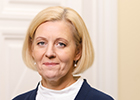
Annely Akkermann
Profiling Eesti Reformierakonna fraktsioonAI Summary
The presenter asks whether disputes arising from the rapid development of the financial sector can remain consistent with the constitution, and whether a financial ombudsman operating within the Financial Supervision Authority could offer a sound and lawful solution.
Riigikohtu esimees Villu Kõve
AI Summary
The Chief Justice of the Supreme Court, Villu Kõve, stated that calling something unconstitutional is a weighty argument. He added that, regarding the financial ombudsman, one must not duplicate the court's jurisdiction; instead, the solution should be a conciliation process—similar to insurance disputes that financial institutions accept—thereby avoiding the model of the labor dispute committee and mandatory rulings.
Aseesimees Toomas Kivimägi
AI Summary
The waiter/waitress turns directly to Anti Allas and asks him for something.

Anti Allas
Profiling Fraktsiooni mittekuuluvad Riigikogu liikmedAI Summary
Anti Allas requests the Chief Justice of the Supreme Court to present, in order of importance, the arguments that underpinned the consent given to the Minister of Justice late last year regarding the closure of the Põlva courthouse, and to clarify whether the regional policy aspect is also counted among the essential considerations.
Riigikohtu esimees Villu Kõve
AI Summary
Chief Justice of the Supreme Court Villu Kõve stated that while the closure of the Rapla and Jõhvi courthouses has been successfully avoided, the future focus should be on reducing the workload of major courthouses. He suggested creating smaller state administration or public institution service points in the counties where citizens could submit documents, attend meetings via video link, and hold hearings if necessary, adding that both decisions and funding must keep pace with this development.
Aseesimees Toomas Kivimägi
AI Summary
Deputy Chairman Toomas Kivimägi addresses Liina Kersna and asks her for something.

Liina Kersna
Profiling Eesti Reformierakonna fraktsioonAI Summary
Liina Kersna stressed that in the autumn, collaborative work will be undertaken during a joint sitting concerning the topic of legal education and the implementation of an integrated curriculum. Discussions will also cover the use of artificial intelligence and questions related to a state-controlled model for processing sensitive data. Furthermore, it was decided to increase the number of doctoral study places in AI fields from 300 to 500, and to explore cooperation between the Faculty of Law and computer scientists to establish a secure AI program.
Riigikohtu esimees Villu Kõve
AI Summary
Chief Justice of the Supreme Court Villu Kõve noted that although developing artificial intelligence is costly and the linguistic and funding challenges are significant, the right approach is to keep data under control and try to realize ideas within that framework, since the thinking is moving in the right direction.
Aseesimees Toomas Kivimägi
AI Summary
Deputy Speaker Toomas Kivimägi addressed Züleyxa Izmailova and simply said: "Please."

Züleyxa Izmailova
Profiling Fraktsiooni mittekuuluvad Riigikogu liikmedAI Summary
Züleyxa Izmailova highlighted that the enforcement of environmental court rulings is often obstructed by the limited resources available to the Environmental Board (for instance, regarding forest notifications). She called for greater supervision and increased public trust, and addressed the necessity of training judges to properly assess environmental conditions, ensuring that the state of the environment is explicitly considered during decision-making and that the burden of providing explanations is not left to rest solely on one party.
Riigikohtu esimees Villu Kõve
AI Summary
Chief Justice of the Supreme Court Villu Kõve stated that the execution of decisions made by state authorities remains difficult. While the situation has improved and solutions need to be submitted to legislators, enforcement must be strengthened, and attention should be focused on specialized environmental law judges and comprehensive training, as environmental law is highly complex and often requires the assistance of artificial intelligence.
Aseesimees Toomas Kivimägi
AI Summary
Deputy Speaker Toomas Kivimägi called Riina Solman forward.

Riina Solman
Profiling Fraktsiooni mittekuuluvad Riigikogu liikmedAI Summary
Riina Solman emphasized that the court should prioritize the interests of the children in cases of family disputes and consider involving an independent expert in the decision-making process in order to protect the child, reduce the risk of manipulation and conflict between the parents, and prevent widespread public confrontation.
Riigikohtu esimees Villu Kõve
AI Summary
According to Supreme Court Chief Justice Villu Kõve, conflicts between parents are detrimental to protecting the child's interests, and the best solution is early family mediation and collaboratively finding solutions regarding issues of custody, maintenance, joint property, and living arrangements. This should take place in a centralized location involving lay judges, child psychologists, and social workers, with the goal of reducing litigation and preventing court decisions from being influenced by traditional and social media.
Aseesimees Toomas Kivimägi
AI Summary
Peeter Ernits is invited to speak.

Peeter Ernits
Profiling Fraktsiooni mittekuuluvad Riigikogu liikmedAI Summary
He asks how much real benefit the annual report to the Chief Justice of the Supreme Court actually yields, and what metrics can be measured from it when compared to last year's proposals.
Riigikohtu esimees Villu Kõve
AI Summary
The Chief Justice of the Supreme Court, Villu Kõve, stated that reforms to the judicial system must be substantive, not merely cosmetic, and he hopes to see certain procedural amendments reach the Riigikogu next year and to initiate discussions on the topic of constitutional review court proceedings.
Aseesimees Toomas Kivimägi
AI Summary
Vice-Chairman Toomas Kivimägi invites Varro Vooglaid to the stage.

Varro Vooglaid
Profiling Fraktsiooni mittekuuluvad Riigikogu liikmedAI Summary
Varro Vooglaid highlighted that legal education in Estonia has deteriorated and the legal expertise of members of parliament is weak. He proposed offering supplementary training to MPs, backed by the Supreme Court, to ensure that legislation complies with the constitution—and he added that he himself would be keen to participate if such support were established.
Riigikohtu esimees Villu Kõve
AI Summary
Chief Justice of the Supreme Court Villu Kõve stated that they, along with the judges, have organized meetings with the Constitutional Committee and the Legal Affairs Committee, and are planning a larger training session this autumn on the methodology of constitutionality. They are also open to round-table discussions, should Parliament express interest, to address concerns and risks related to the preparation of legislation.
Aseesimees Toomas Kivimägi
AI Summary
Deputy Chairman Toomas Kivimägi called upon Ester Karuse to speak.

Ester Karuse
Profiling Fraktsiooni mittekuuluvad Riigikogu liikmedAI Summary
Ester Karuse expresses concern that Estonia has only one substantive court instance, and decisions made at the second instance are often the opposite of the first for many, and she asks how to improve this perception.
Riigikohtu esimees Villu Kõve
AI Summary
Chief Justice of the Supreme Court Villu Kõve said that the Estonian court system is three-tiered, but consideration should be given to limiting appeals and emphasizing the assessment of evidence at the first instance, leaving the subsequent instances primarily for the review of legal questions.
Aseesimees Arvo Aller
AI Summary
Urmas Kruuse is invited to speak at the beginning of the address.

Urmas Kruuse
Profiling Eesti Reformierakonna fraktsioonAI Summary
According to the rapporteur, the residence register requirement should not be used so intrusively for local elections, as it infringes upon privacy, encourages the registration of multiple residences, and raises the question of whether the same level of scrutiny might apply when applying for a kindergarten spot.
Aseesimees Arvo Aller
AI Summary
Your time has come.
Riigikohtu esimees Villu Kõve
AI Summary
Chief Justice of the Supreme Court Villu Kõve said that the constitution does not require a local council candidate to reside in the same location, and that the uncertainty of the population register data and disputes over determining residency create conflicts, which is why the population register and elections should be separated.
Aseesimees Arvo Aller
AI Summary
The speech begins by calling Toomas Kivimägi to the stage.
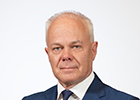
Toomas Kivimägi
Profiling Eesti Reformierakonna fraktsioonAI Summary
Toomas Kivimägi highlighted that acquittal due to the statute of limitations infringes upon the sense of justice and often leads to significant state expenditures. He inquired whether the court possesses all the necessary instruments or if amendments by the legislature are needed. He also debated the threshold for initiating court proceedings and presented a unique question: whether in some countries criminal proceedings are made public only up until the filing of charges, given that the press tends to pronounce guilt already from the outset of the proceedings.
Riigikohtu esimees Villu Kõve
AI Summary
Supreme Court Chief Justice Villu Kõve stresses that the high-profile launch of criminal proceedings, coupled with early public attention and media coverage, can prolong the process. He further emphasizes the necessity of having a strong, assertive judge and a clear threshold, noting that the differing personalities and conduct of judges significantly dictate how the proceedings unfold.
Aseesimees Arvo Aller
AI Summary
The talk will focus on the Supreme Court's alleged extensive right to self-governance, and Kalle Grünthal has been invited to speak.

Kalle Grünthal
Profiling Fraktsiooni mittekuuluvad Riigikogu liikmedAI Summary
Kalle Grünthal voiced concerns that the Riigikogu's right to self-governance must be grounded in established norms; otherwise, the 'steamroller tactic' will be employed, jeopardizing constitutionality. He further inquired whether Riigikogu members have the right to appeal to the court to challenge the matter in cases of clear violations.
Riigikohtu esimees Villu Kõve
AI Summary
Chief Justice of the Supreme Court Villu Kõve stated that the current mechanism of the Constitutional Review Act is outdated and confusing, and must be brought before the Constitutional Committee in the autumn to clarify what exactly can be challenged and what can be appealed, so that the rules are equally clear to both the opposition and the coalition.
Aseesimees Arvo Aller
AI Summary
Deputy Chairman Arvo Aller asked Urmas Reinsalu to come.

Urmas Reinsalu
Profiling Isamaa fraktsioonAI Summary
Urmas Reinsalu raises a question concerning the initiative to modify the administrative structure of the courts, under which a separate administrative body for the courts of first and second instance would be granted the authority to issue regulations. He asks whether the implementation of this change would make the decision regarding the physical location of courthouses an internal competence of that body, thereby reducing the influence of both the executive and legislative branches—and whether this constitutes a reasonable solution.
Riigikohtu esimees Villu Kõve
AI Summary
Kõve stressed that decisions concerning the location and closure of courthouses should be made in cooperation with the Riigikogu and through funding that would establish clear priorities and ensure the continued administration of justice.
Aseesimees Arvo Aller
AI Summary
Vice-Chairman Arvo Aller invites Jüri Jaanson to the stage to speak.

Jüri Jaanson
Profiling Eesti Reformierakonna fraktsioonAI Summary
Jüri Jaanson asked how competent and reliable the court system is regarding sports cases, and how the decisions made by the EOC sports arbitration influence the court system or the judges.
Riigikohtu esimees Villu Kõve
AI Summary
The Chief Justice of the Supreme Court, Villu Kõve, noted that the field of sports is globally engaging, and while disputes in this area can reach the courts, the judiciary only intervenes on procedural matters. He added that sports arbitration is moving in the right direction, even though some schemes attempting to keep disputes in-house remain problematic.
Aseesimees Arvo Aller
AI Summary
Vice-Chairman Arvo Aller called Lauri Läänemets up to the stage.
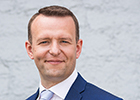
Lauri Läänemets
Profiling Sotsiaaldemokraatliku Erakonna fraktsioonAI Summary
Lauri Läänemets poses a broad question: whether changes to the organization of life in Estonia—including the regulation of family life and labor relations, coupled with a different societal attitude—could reduce the number of cases filed in court, thereby easing the judicial workload.
Riigikohtu esimees Villu Kõve
AI Summary
Chief Justice of the Supreme Court Villu Kõve emphasized the wider use of pre-trial procedures based on conciliation for the peaceful resolution of conflicts between neighbors and those involving children, state support for spreading this culture, and the forecasting of litigation outcomes using artificial intelligence, in order to reduce unnecessary court cases and make the court process less intimidating for people.
Aseesimees Arvo Aller
AI Summary
The Riigikogu puts the Reform Party faction's proposal to extend the June 10, 2025 sitting until the agenda is exhausted, but no later than 14:00, to a vote.
Aseesimees Arvo Aller
AI Summary
The proposal received 47 votes in favor, 0 against, and there were no abstentions; next, negotiations will take place between the factions, and first, Urmas Reinsalu, on behalf of the Isamaa faction, requests three additional minutes.

Urmas Reinsalu
Profiling Isamaa fraktsioonAI Summary
Urmas Reinsalu stated that the functioning of Estonian democracy and the rule of law is facing a crisis of confidence, accusing the Riigikogu majority of violating internal rules and deviating from the application of laws, and calling for the strengthening of constitutional oversight and open dialogue before new legislation is adopted.
Aseesimees Arvo Aller
AI Summary
The message is, now is your time.
Aseesimees Arvo Aller
AI Summary
Deputy Speaker Arvo Aller, representing the parliamentary group of the Social Democratic Party of Estonia, requests three minutes of additional time for Lauri Läänemets.

Lauri Läänemets
Profiling Sotsiaaldemokraatliku Erakonna fraktsioonAI Summary
Lauri Läänemets warns that a right-wing ideology prioritizes the interests of business, leading to cuts in state funding and public services (such as education, healthcare, and the justice system). This, he argues, increases inequality and threatens the rights of ordinary people, ultimately undermining their trust in the state.
Aseesimees Arvo Aller
AI Summary
The Deputy Speaker thanks [the assembly] and invites Varro Vooglaid to speak on behalf of the EKRE faction.

Varro Vooglaid
Profiling Fraktsiooni mittekuuluvad Riigikogu liikmedAI Summary
Varro Vooglaid noted that the quality of legal education in Estonia has been in continuous decline: last year, 13 individuals failed the judge's exam, and students are no longer studying logic or legal philosophy. Consequently, cooperation between the Supreme Court and the University of Tartu is necessary, alongside opportunities for further training for members of parliament, to ensure that adopted legislation is in compliance with the constitution.
Aseesimees Arvo Aller
AI Summary
Deputy Speaker Arvo Aller asked for three more minutes.

Varro Vooglaid
Profiling Fraktsiooni mittekuuluvad Riigikogu liikmedAI Summary
Varro Vooglaid believes that Estonia must seriously consider strengthening constitutional judicial review—either by establishing a separate constitutional court or expanding the powers of the court of cassation—as well as discussing the tenure of judges, in order to ensure that laws are in compliance with the constitution.
Aseesimees Arvo Aller
AI Summary
This is a brief message of thanks, presented by Madis Timpson on behalf of the Reform Party faction.

Madis Timpson
Profiling Fraktsiooni mittekuuluvad Riigikogu liikmedAI Summary
Madis Timpson pointed out that while legal education cannot be expected from every member of parliament and the number of lawyers is decreasing, he discussed reforms to the judicial system. He stressed the importance of state independence and the principle of inclusion, and commended the introduction of new technologies and the AI-based court information system, as well as the reduction of judges' workloads. This reduction, he noted, would allow judges to focus on their core duties and ensure access to justice, while reiterating that Estonia is a rule of law state and reforms must be implemented step by step.
Aseesimees Arvo Aller
AI Summary
Deputy Chairman Arvo Aller asks for three more minutes.

Madis Timpson
Profiling Fraktsiooni mittekuuluvad Riigikogu liikmedAI Summary
Madis Timpson emphasized that judges are highly educated and their resource is expensive, and that a decisive nationwide reform must be carried out concerning legal education, the involvement of notaries, and the handling of consumer credit disputes. Although the state has promised to restore salaries, this has not yet been done.
Aseesimees Arvo Aller
AI Summary
Upon the conclusion of today's first agenda item, I announce that there are no further requests to speak, and the discussion is now closed.